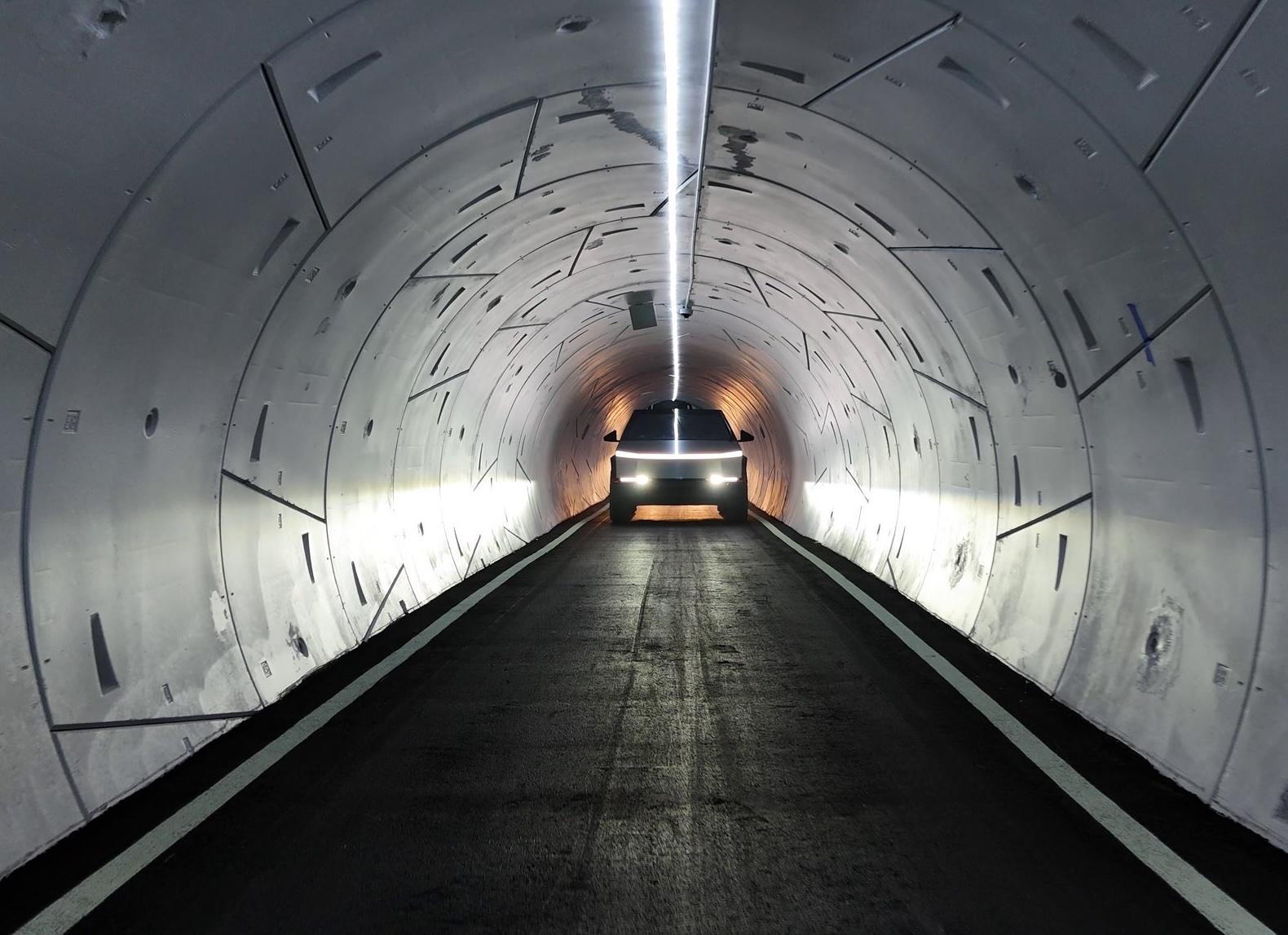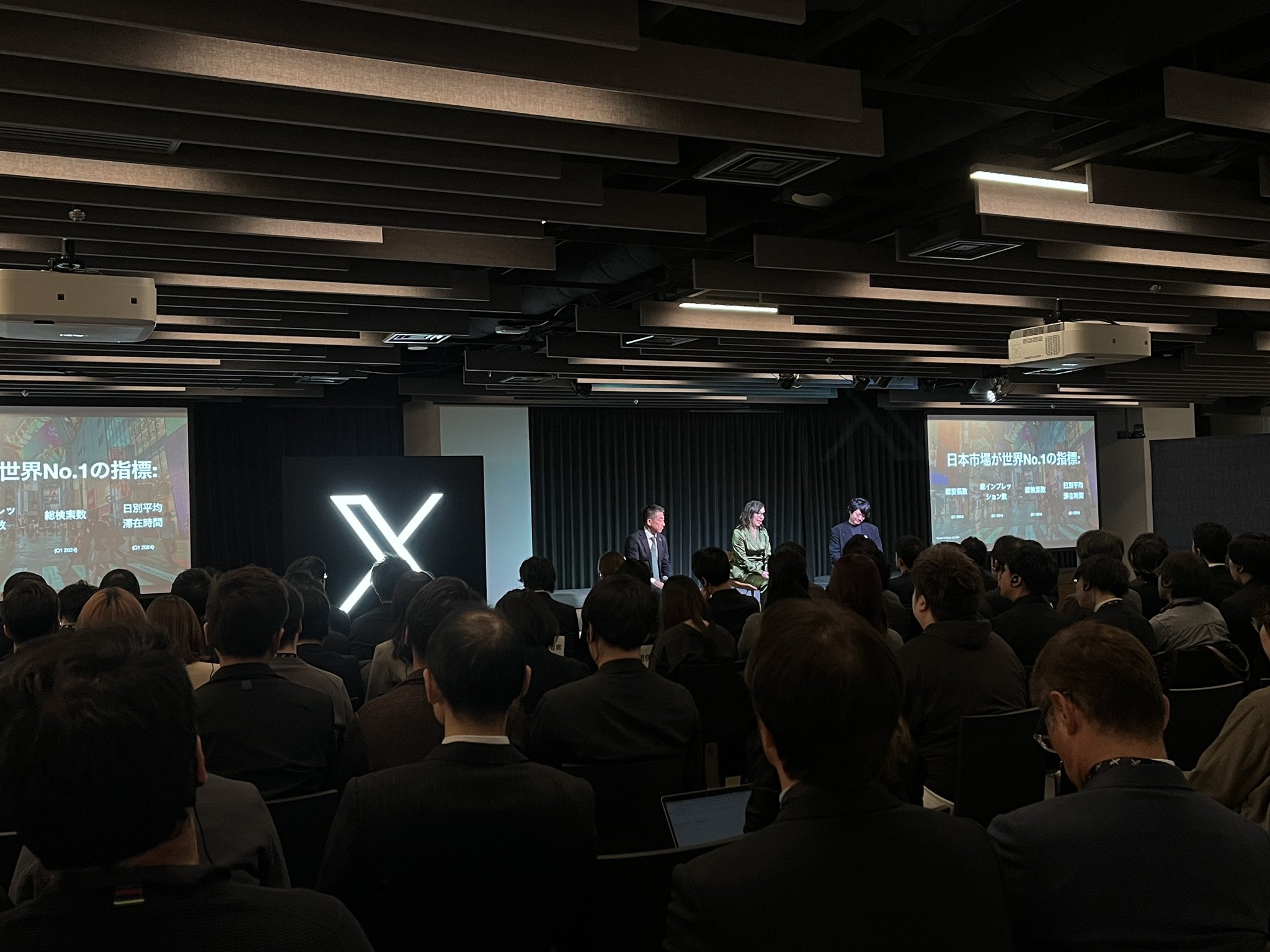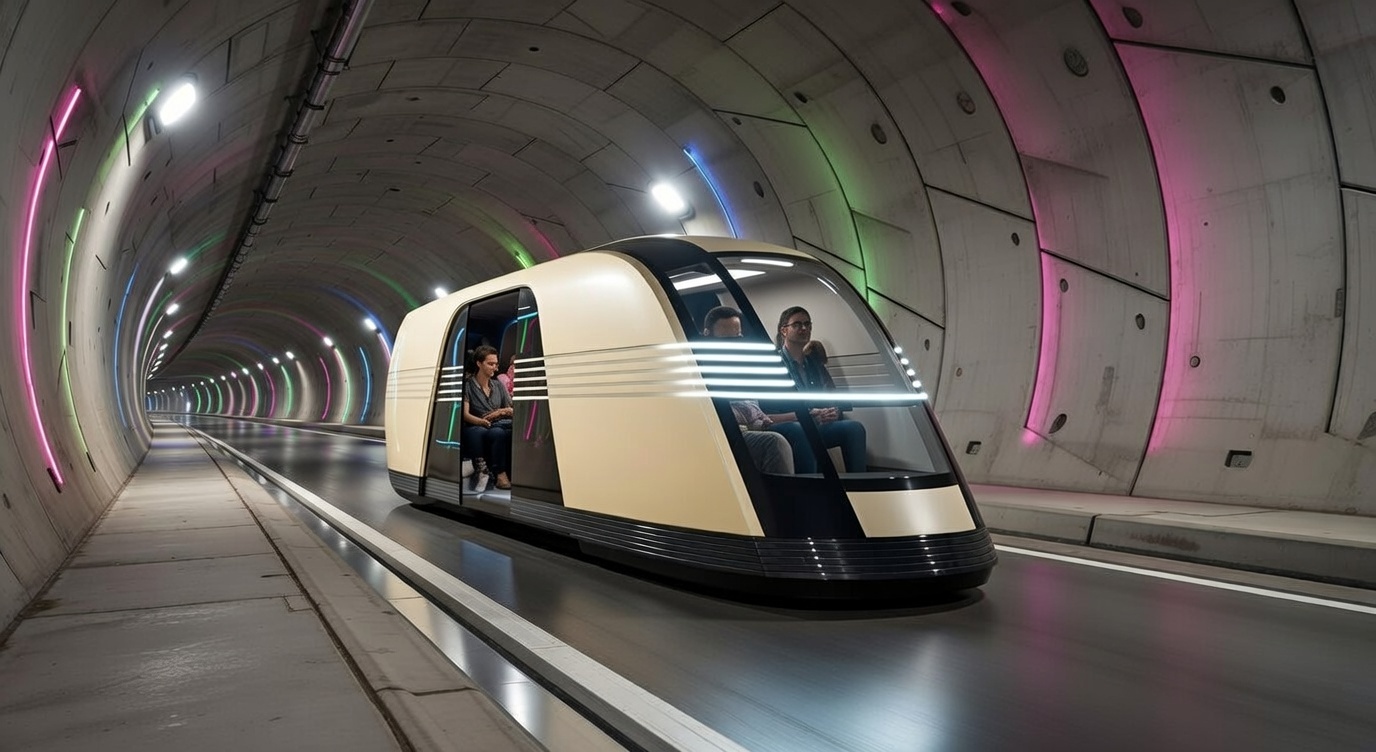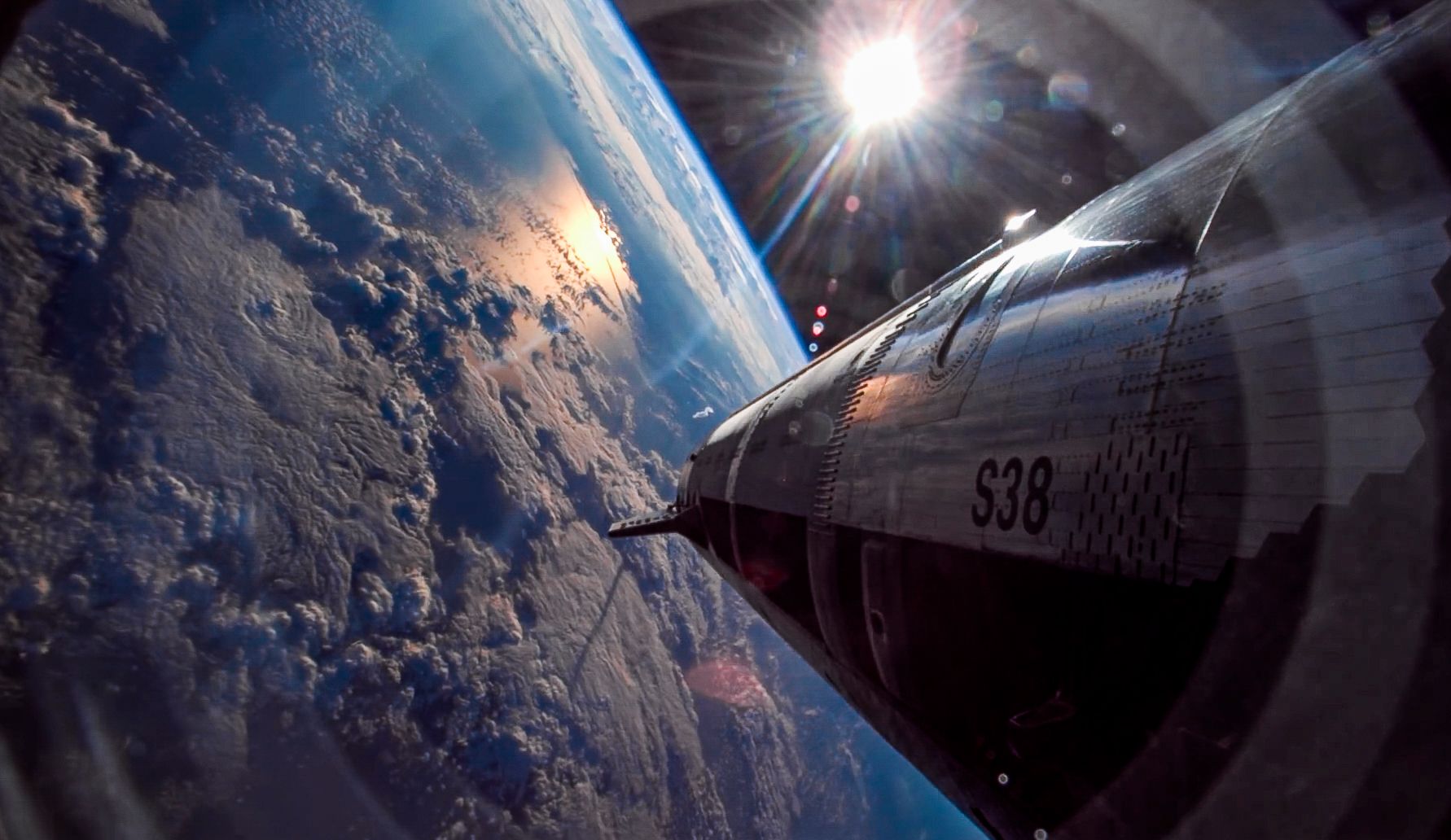Elon Musk
The Boring Company paves the way for Tesla robotaxi future
The Boring Company breakthrough boosts Tesla’s robotaxi dream. Autonomous Cybercabs may soon zip through tunnels, solving gridlock for good.

Earlier this week, The Boring Company (TBC) announced that it has continuously mined in a Zero-People-in-Tunnel (ZPIT) configuration. A Tesla executive responded to TBC’s latest milestone and explained how Elon Musk’s tunneling company will create Tesla’s robotaxi future.
The Boring Company shared videos of its ZPIT configuration and explained why this is a huge milestone.
“In the same way that full rapit reusability is the holy grail for rockets, ZPIT continuous mining is the holy grail for Boring Machines. This is the safest, fastest, and least expensive architecture to build tunnels,” TBC clarified.
Tesla vehicles with human drivers are currently used in The Boring Company’s Las Vegas tunnels to transport people. The Tesla Cybercab would significantly impact the functionality of TBC’s tunnels. Tesla’s VP of AI Software, Ashok Elluswamy, explained how The Boring Company would help create Tesla’s vision for robotaxis.
“Will need this big time in the future,” Elluswamy said, referring to The Boring Company’s announcement about reaching ZPIT configuration.
“With autonomous vehicles, we’ll have affordable premium transport for everyone. This will likely increase traffic due to the increased usage, even though each vehicle is much more efficiently utilized,” he elaborated.
The Boring Company’s main missions are to solve traffic and provide rapid point-to-point transport. Elon Musk believes the solution to traffic is 3D road designs, which include tunnels that act like a wormhole or warp tunnel.
TBC’s Las Vegas Convention Center tunnel network showcases Musk’s idea of 3D road designs and how fast it can transport people. The Vegas Loop in Las Vegas is also expanding and will support The Boring Company’s mission.
The Boring Company is close to beating Gary the Snail’s tunneling speed with its Prufrock boring machine–another big milestone. According to TBC, the latest iteration of Prufrock can start tunneling within 48 hours of arriving at a site and dig over 1 mile per week. Prufrock’s next goal is to beat 1/10th of a human walking speed or 7 miles per day.
Tesla is preparing to launch robotaxi services in Texas this summer. As Elon Musk’s electric vehicle company ramps up robotaxi services, his tunneling company will ensure the roads are clear of mind-numbing traffic.

Elon Musk
Elon Musk’s X sees outage on Monday as users report issues
Monday’s outage follows a similar issue that befell the social media platform in mid-January.

X experienced an outage on Monday morning, with tens of thousands of users reporting that the platform failed to load across both desktop and mobile. The disruption began around 8:02 a.m. ET, as per Downdetector data, and quickly escalated in the U.S. and U.K.
Monday’s outage follows a similar issue that befell the social media platform in mid-January.
Shortly after 8 a.m. ET, Downdetector showed a sharp rise in incident reports. At one point, U.S. complaints exceeded 40,000, while U.K. reports climbed past 6,000. Earlier in the outage, filings had already crossed 11,000 in the U.S. and 3,300 in the U.K., as noted in a TechRadar report. X users in other locations, such as the Philippines and Costa Rica, also reported similar issues.
Users attempting to access X were met with a “something went wrong” message. Feeds did not refresh, posts failed to appear, and both the social media platform’s app and web versions appeared affected by the issue. The outage struck during peak weekday usage, amplifying its visibility across regions worldwide.
X has not issued an official explanation for the latest outage or confirmed what caused the service disruption. The scale of complaints drew comparisons to the platform’s major outage in November 2025, which resulted in users being met with “Internal server error / Error code 500” messages, as well as Cloudflare-related error notices.
The incident also comes just weeks after X experienced a similar downtime in mid-January. That outage seemed more notable, however, with more than 100,000 users reporting issues with the social media platform on Downdetector.
Elon Musk
New details emerge on The Boring Company’s Universal tunnel plans
The materials outline staffing, construction timelines, tunnel configuration, and operational details that were not previously public.

Newly released bidding documents have shed light on how Elon Musk’s Boring Company plans to connect Universal Orlando Resort’s north campus to Universal Epic Universe.
The materials outline staffing, construction timelines, tunnel configuration, and operational details that were not previously public about the planned Loop system.
The Shingle Creek Transit & Utility Community Development District voted Feb. 11 to begin contract negotiations with The Boring Company after ranking it the top bidder for the Universal Orlando transport project. Now, evaluation documents obtained by local news media reveal how the company intends to execute the project, according to Attraction Insight.
The proposal describes a twin-tunnel configuration, with one tunnel in each direction. It also noted that permitting, design, and construction could take roughly a year and a half once approvals are secured. The company indicated it could deploy multiple tunnel boring machines and install temporary support infrastructure, including muck storage pits and stormwater systems, during construction.
Bid documents list eight internal specialists assigned to the project, including tunnel engineers, structural engineers, and tunnel boring machine experts. Six subcontractors would handle fire protection, communications, soil treatment, and concrete work.
The company stated it “has the necessary internally produced tunneling equipment and personnel immediately available to complete this project for the district as quickly as permits and approvals can be obtained.”
Operationally, the system would mirror the company’s Las Vegas Loop model, using Tesla vehicles to provide point-to-point transport rather than fixed-route buses. The proposal frames the concept as “on-demand, express transportation,” with vehicles dispatched as needed and capacity adjustable in real time.
Stations could be built underground or above ground with ramp access into tunnels. The documents also referenced potential future integration of a configurable Robovan for passengers and cargo, though capacity projections for the Orlando tunnels have not yet been disclosed.
The proposal states that the Loop can integrate “easily into environmentally sensitive areas,” but it does not provide detailed mitigation plans for Central Florida’s high water table and limestone geology, which is susceptible to sinkholes. The company has stated that it intends to hire an Orlando-based geotechnical firm to evaluate soil conditions.
Elon Musk
Musk bankers looking to trim xAI debt after SpaceX merger: report
xAI has built up $18 billion in debt over the past few years, with some of this being attributed to the purchase of social media platform Twitter (now X) and the creation of the AI development company. A new financing deal would help trim some of the financial burden that is currently present ahead of the plan to take SpaceX public sometime this year.

Elon Musk’s bankers are looking to trim the debt that xAI has taken on over the past few years, following the company’s merger with SpaceX, a new report from Bloomberg says.
xAI has built up $18 billion in debt over the past few years, with some of this being attributed to the purchase of social media platform Twitter (now X) and the creation of the AI development company. Bankers are trying to create some kind of financing plan that would trim “some of the heavy interest costs” that come with the debt.
The financing deal would help trim some of the financial burden that is currently present ahead of the plan to take SpaceX public sometime this year. Musk has essentially confirmed that SpaceX would be heading toward an IPO last month.
The report indicates that Morgan Stanley is expected to take the leading role in any financing plan, citing people familiar with the matter. Morgan Stanley, along with Goldman Sachs, Bank of America, and JPMorgan Chase & Co., are all expected to be in the lineup of banks leading SpaceX’s potential IPO.
Since Musk acquired X, he has also had what Bloomberg says is a “mixed track record with debt markets.” Since purchasing X a few years ago with a $12.5 billion financing package, X pays “tens of millions in interest payments every month.”
That debt is held by Bank of America, Barclays, Mitsubishi, UFJ Financial, BNP Paribas SA, Mizuho, and Société Générale SA.
X merged with xAI last March, which brought the valuation to $45 billion, including the debt.
SpaceX announced the merger with xAI earlier this month, a major move in Musk’s plan to alleviate Earth of necessary data centers and replace them with orbital options that will be lower cost:
“In the long term, space-based AI is obviously the only way to scale. To harness even a millionth of our Sun’s energy would require over a million times more energy than our civilization currently uses! The only logical solution, therefore, is to transport these resource-intensive efforts to a location with vast power and space. I mean, space is called “space” for a reason.”
The merger has many advantages, but one of the most crucial is that it positions the now-merged companies to fund broader goals, fueled by revenue from the Starlink expansion, potential IPO, and AI-driven applications that could accelerate the development of lunar bases.








